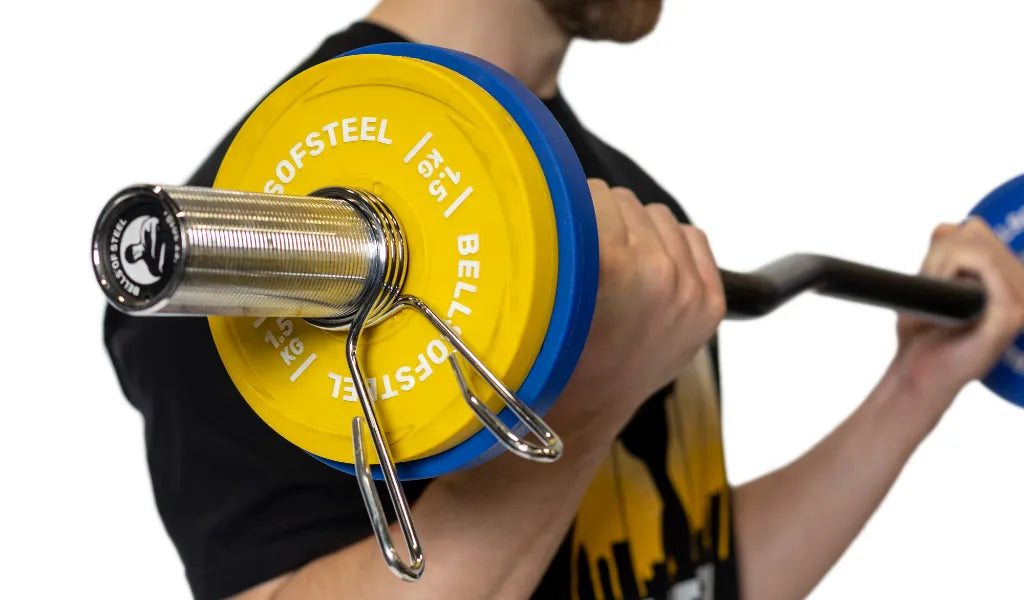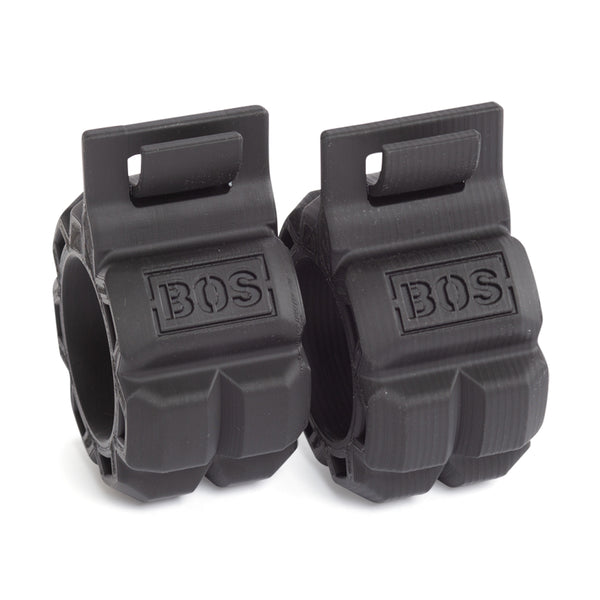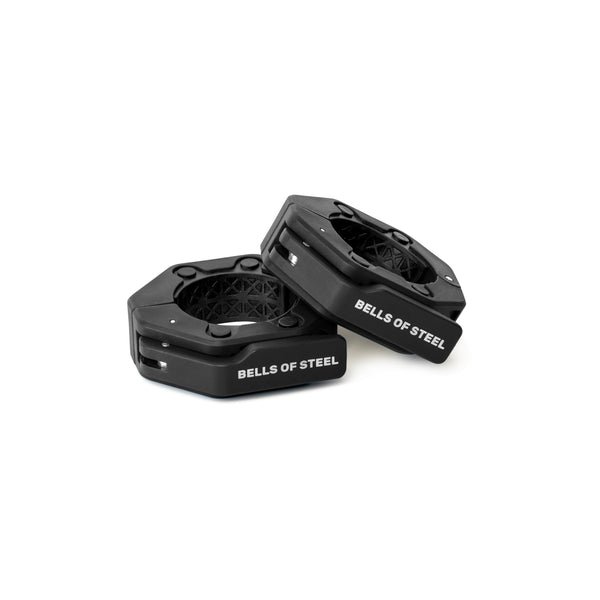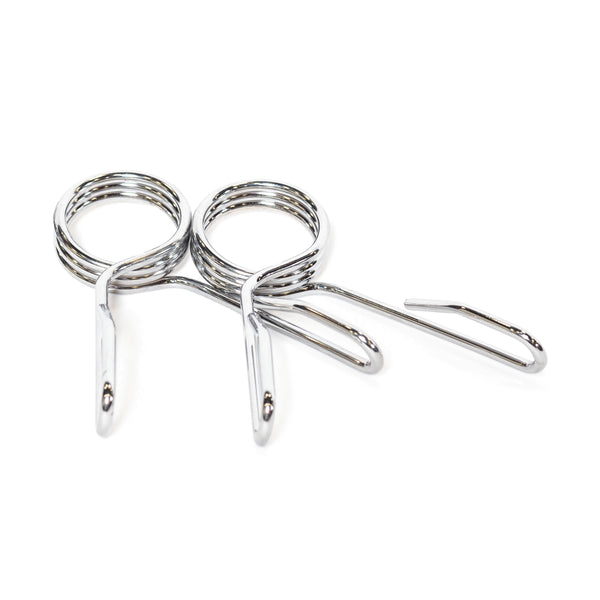When it comes to lifting heavy, collars might not be the flashiest piece of equipment in the gym—but they do hold it all together. Literally.
If you’ve spent any time in a commercial gym (or your buddy’s basement “iron dungeon”), you’ve probably seen—or used—a pair of spring collars. They’re the OGs of barbell safety, the no-fuss, no-frills solution to keeping plates from sliding off mid-lift. But are spring collars actually safe? Or are they just hanging on by a thread... or spring?
Let’s get into it—grip strength not required.
What Are Spring Collars?
Spring collars, also known as spring clips, are simple metal devices made of coiled steel. You pinch the handles to open them, slide them onto a barbell sleeve, and let go to clamp the plates in place.
If you’ve ever wrestled with one and thought, “Am I lifting weights, or just fighting with this collar?”—you’re not alone.
Benefits of Spring Collars
Quick and Easy to Use
No knobs, no levers, no twisting. Spring collars are about as simple as it gets. Squeeze, slide, done. Perfect when you want to change weights faster than your playlist can skip the ads.
Affordable
Budget home gym? Spring collars are your wallet’s best friend. You can pick up a pair without sacrificing this month’s protein powder budget.
Reliable for Moderate Lifting
Spring collars are totally fine for most general strength training, especially if you're not maxing out your deadlift in dramatic, plate-rattling fashion. Bench press, curls, overhead presses—they’ve got you covered.
When Spring Collars Might Not Be Safe
As trusty as they are, spring collars do have some limitations—and if you’re chasing PRs or loading up for beast mode, you’ll want to pay attention.
High-Impact or Explosive Movements
Performing Olympic lifts, dynamic rows, or landmine work with angle changes? Spring collars can lose their grip, especially on well-worn bars with thinner sleeves. Nobody wants a rogue plate flying off mid-clean.
Heavy Deadlifts and Squats
If you’re slamming the bar or grinding through max-effort lifts, those plates might inch their way out. It’s like your barbell is trying to undress itself mid-set. Rude.
Bent or Warped Collars
Spring collars aren’t immortal. Over time, they can bend, loosen, or get stuck. If it takes more energy to get the collar off than to finish your lift, it might be time for an upgrade.
Alternatives to Spring Collars
Ready to level up your collar game? Here’s a safe, secure, and slightly bougier option:
Locking Collars (aka Snap Collars)
These bad boys feature a clamp or latch to lock your plates in place. They’re secure, easy to use, and don’t loosen over time. The Bells of Steel Magnetic Clamp Collars are perfect for anyone tired of spring-loaded thumb wrestling.
FAQs About Spring Collars
Q: Are spring collars enough for heavy squats?
A: They can be—if you’re squatting under control. But if you’re going full gorilla mode with bar drops and plates sliding from side to side, consider locking collars for extra security.
Q: Do spring collars wear out?
A: Absolutely. Like gym socks, spring collars lose elasticity over time. If they no longer grip the bar tightly or wobble, they’ve done their time.
Q: Are spring collars okay for beginners?
A: Yep! Spring collars are great for beginners lifting moderate weight. Just check the fit before each session and swap them out if they start to feel loosey-goosey.
Q: Can spring collars be used on specialty bars?
A: Some yes, some no. Fat bars, trap bars, or specialty sleeves might require a different collar type. Always check compatibility before forcing it—no one wants a sleeve shimmy mid-set.
Final Thoughts: Spring into Safety
Spring collars are like the gym equivalent of your favorite pair of shoes—convenient, classic, and totally fine for most situations. They’re great for beginners, quick sets, and budget home gyms.
But if your workouts are getting more intense than a pre-workout-fueled PR attempt, you might want to upgrade to locking collars or something beefier.
Whether you're lifting light or loading up like a powerlifting legend, your collars should always keep up. Because the only thing worse than missing a lift… is dodging flying plates after it.



